How to Boil Eggs for Easy Peeling? Here Are The Top 10 Tips
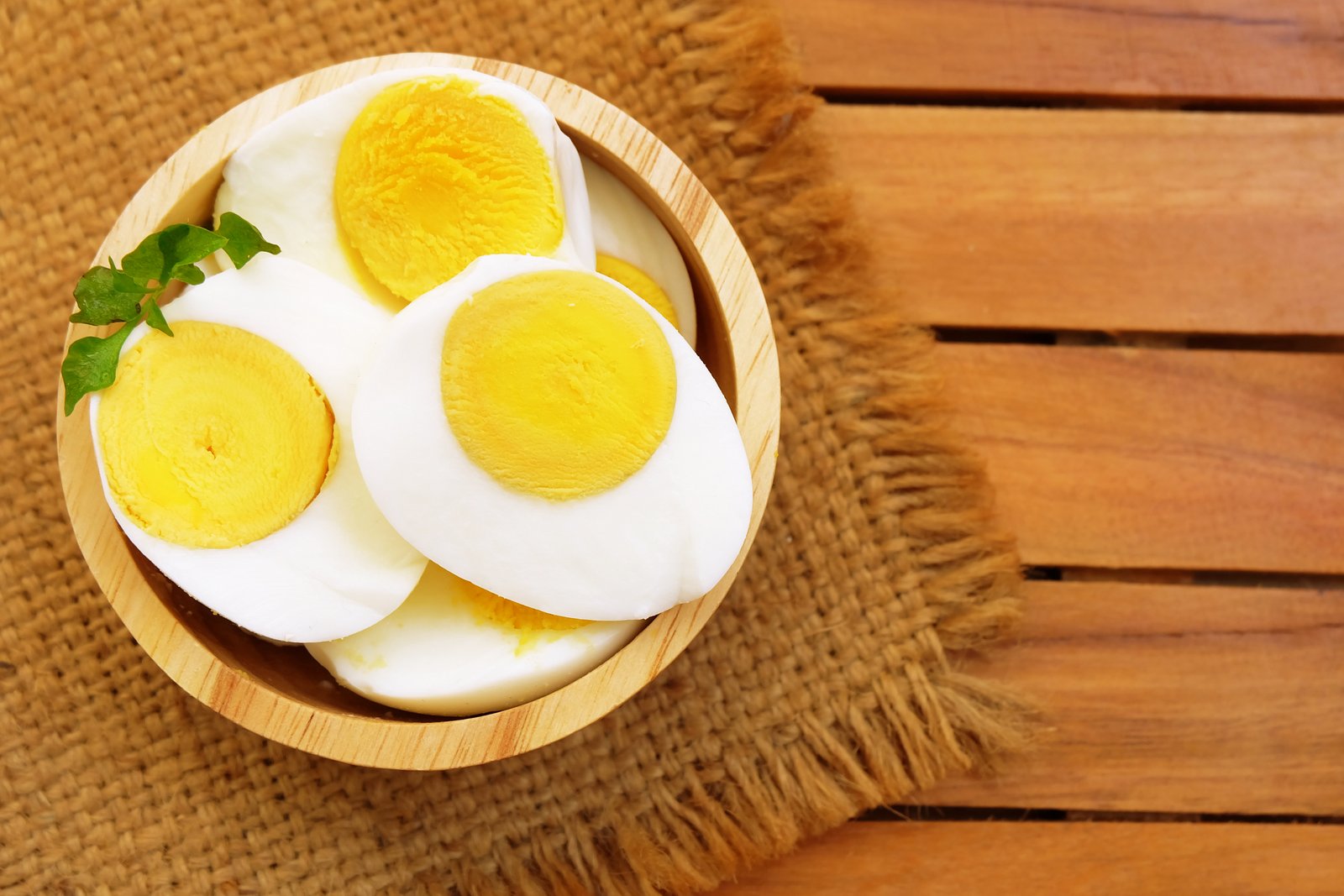
Hard-boiled eggs are one of my favorite foods. BUT, why is it that cooking and peeling hard-boiled eggs is so difficult for something so simple? In my time, I’ve made a lot of hard-boiled eggs. However, because peeling them well doesn’t always work, I wanted to learn how to boil eggs to peel them easily.
Start with older eggs, around 7-10 days old, bring cold water and eggs to a low boil for 10 minutes with a teaspoon of baking soda, give a slight crack on the shell, and then shock the eggs briefly in icy water. You’re now ready to peel!
But there’s a lot more to it than that, so let’s take a look at EVERY question about hard-boiled eggs.
Why is it so difficult to peel my hard-boiled eggs?
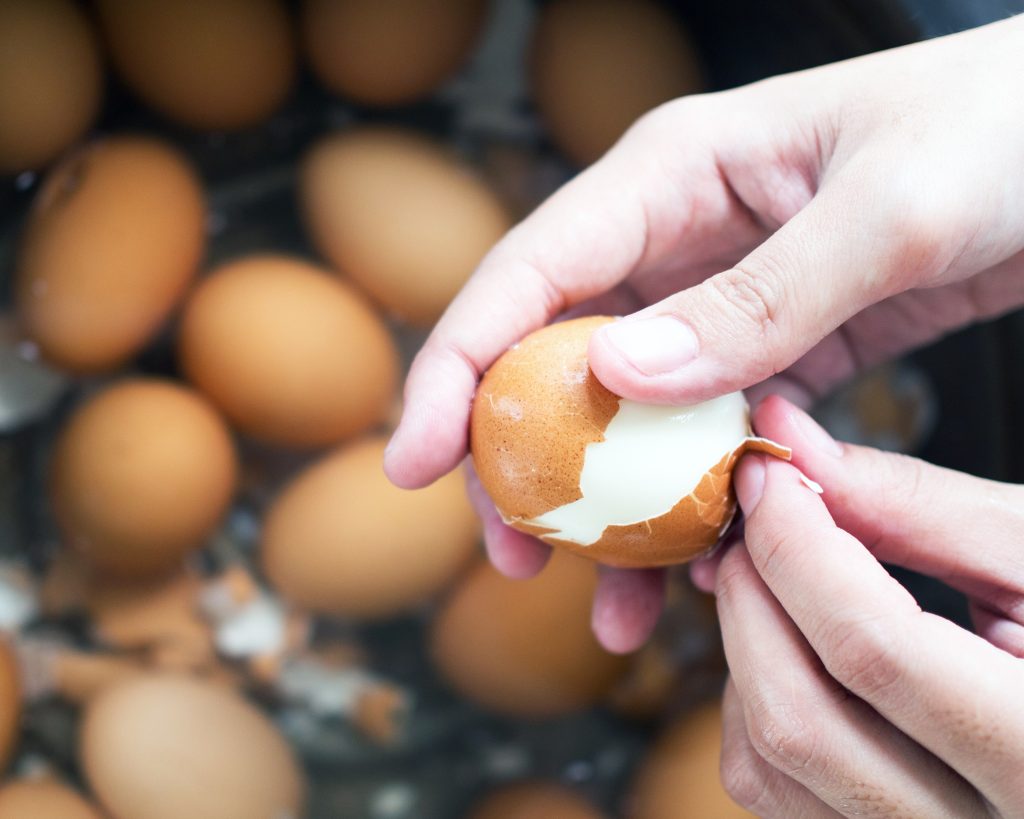
Part of it, ironically, has to do with freshness. The fresher the egg, the more difficult it is to peel. While we are conditioned to seek out the freshest goods while shopping for groceries, if you’re making dozens of deviled eggs for a party, do yourself a favor and skip the farmer’s market.
Part of the reason for this is that the shells of eggs thin out as they age, as they are eventually meant to birth birds. More precisely, the egg white (also known as albumen) adheres to the shell of a fresh egg more than it does to the shell of an older egg.
So keep an eye out for eggs that are 7-10 days old. It’s essential to understand how egg cartons are dated. Most egg cartons in supermarkets now have a date imprinted on them, just like all perishable grocery items. Egg cartons, on the other hand, used to employ a Julian date system not long ago.
If your eggs utilize Julian dates, they are usually four-digit codes. The military created Julian dating. When looking at the numbers from left to right, the first number is the year’s last number, and the next four digits are the year’s days. It’s because March 1st is the 60th day of the year, the Julian date code for your eggs would be 9060 if they were packaged on that date.
Does baking soda make it easier to peel eggs?
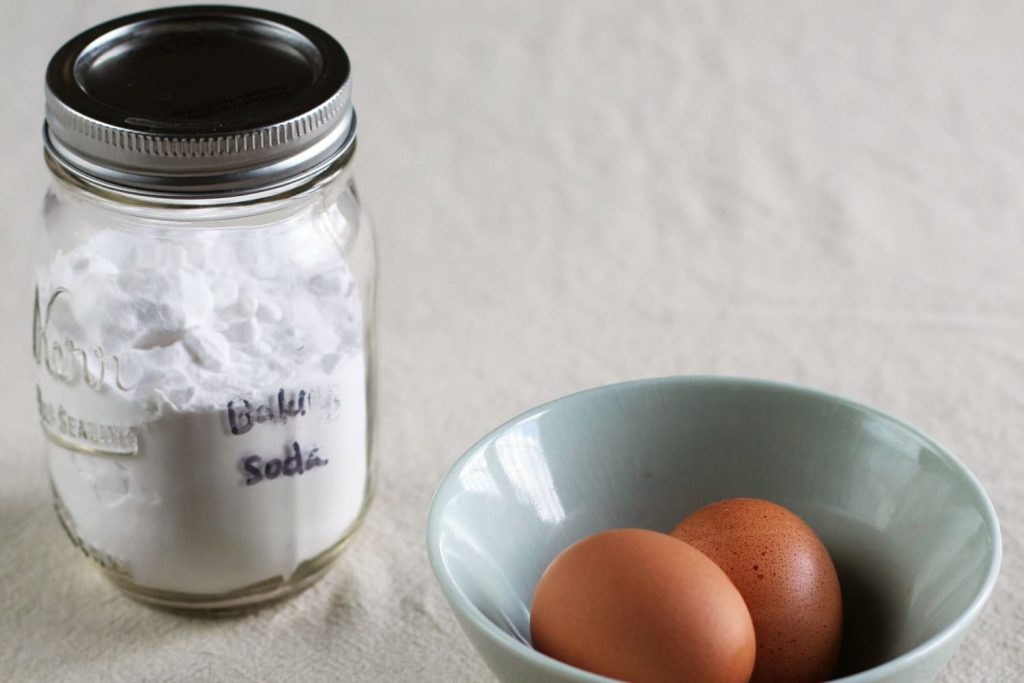
Yes, adding a teaspoon of baking soda to the boiling water while boiling eggs helps the albumen stick to the shell-less. As the eggs cook, the baking soda penetrates through the shell. Adding baking soda to your egg cooking water will make the egg peel more like an older egg, even if your eggs are very fresh.
Do I need to pierce the eggshells with a fork to allow the baking soda to seep in?
My quick answer is no, not really. For one thing, I’d probably become a vegan if I had to use a pin to punch holes in the shell of a raw egg every time I wanted to prepare hard-boiled eggs, and it would irritate me to no end! So, unless you’re a glutton for torture, don’t waste your time attempting to poke holes in the eggshell.
Is it true that vinegar makes it simpler to peel eggs?
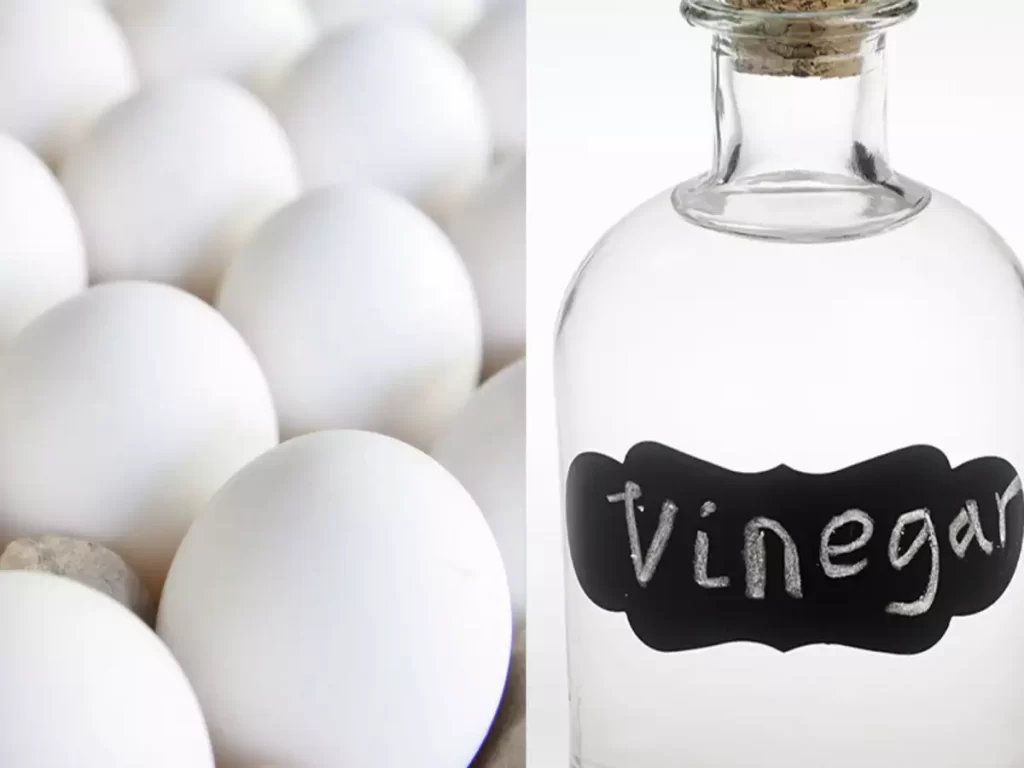
Without ten different people giving you ten different methods to do anything, the internet wouldn’t be the internet: vinegar, baking soda, salted water, water at a low boil, and so on. In the naked city, sorry… internet, there are a million stories. However, when making hard-boiled eggs, some individuals like to add vinegar to the water.
Combine 1/2 cup (white or apple cider) vinegar with a teaspoon of salt in cold water to attempt the vinegar approach. Bring the water to a low boil over medium-high heat and cook for 10 minutes for a hard-boiled egg (or about 6 minutes for a soft-boiled egg).
The theory is that a small amount of salt and vinegar will penetrate the shell and loosen the egg whites, similar to the baking soda approach. I prefer the baking soda technique because if some of the extra stuff passes through the shell and into the egg, I’d rather not have vinegar as the added flavor (especially salty vinegar).
When hard-boiling eggs, should I add salt to the water?
The simple answer is no.
Salting cooking water for just about anything is second nature to those of us who know our way around a kitchen. The rationale for this is that it can season anything we’re cooking gently and somewhat boost the temperature of the water (which makes things cook faster).
On the other hand, the salt doesn’t fully permeate the shell of hard-boiled eggs (or at least not enough to be noticeable in taste). We also don’t want the water temperature to be too high because we want the eggs to cook at a low, gentle boil.
While a pinch of salt would help the water heat up faster, I’m not sure it’s worth it though.
To hard-boil eggs, should I use cold water?
Yes, in a word. Adding raw eggs to boiling water causes the shell to split before the egg is fully cooked. A cracked shell of a raw egg can cause uneven cooking or overcooking. The brownish-greenish ring around the yolk of an over-cooked egg is something we’ve all seen before.
As a result, always begin with a pot of cold water. Then, gently pour in the raw eggs, ensuring that the water comes up to approximately an inch over the eggs. Then turn the heat up to medium-high and bring the mixture to a low boil.
Is it necessary to let the hard-boiled eggs cool before peeling them?
The short answer is yes. You don’t want them to be ice cold, but neither do you want them to be scorching. As a result, following boiling, most experts prescribe an ice water bath. Carefully transfer the eggs from the hot water to the cold bath using a slotted spoon. It can also help if you handle them hot and give them a gentle crack on a clean and flat surface before putting them in the icy water.
Do I cook the eggs for 10 minutes from the time the water is kept on a stove flame or from the time the water begins to boil?
Here’s yet another perplexing question! Many websites recommend putting the eggs in cold water and cooking them for 10 minutes or boiling them for 10 minutes. Of course, this indicates that the timer begins when the water begins to boil, but this isn’t really evident.
As a result, let me be clear!
When the water begins to boil, set your timer! Would you instead switch it on and then leave it alone? Then it should take about 16 minutes from the moment you turn on the burner (using cold water in the pot). At best, your eggs will be soft-boiled eggs if you start the 10-minute timer when the cold water reaches the burner.
How do you correctly cook eggs?
- Follow these steps for consistently flawless hard-boiled eggs
- Choose eggs that aren’t as fresh (7-10 days old)
- Bring to a low boil in a kettle of cold water with about a teaspoon of baking soda added.
- Bring the water to a rolling boil, but not to a full boil. 175° is about right if you have a thermometer.
- Cook for around 10 minutes with the eggs (or 13 minutes for extra-large eggs)
- To crack the egg, gently tap it on a clean, level surface.
- Allow the eggs to cool completely before peeling them (by placing them in the fridge or in an ice-water bath). You don’t want them to be ice cold, but neither do you want them to be scorching.
- Begin peeling the shell gently.
When it comes to boiled eggs, how do you determine when they’re done?
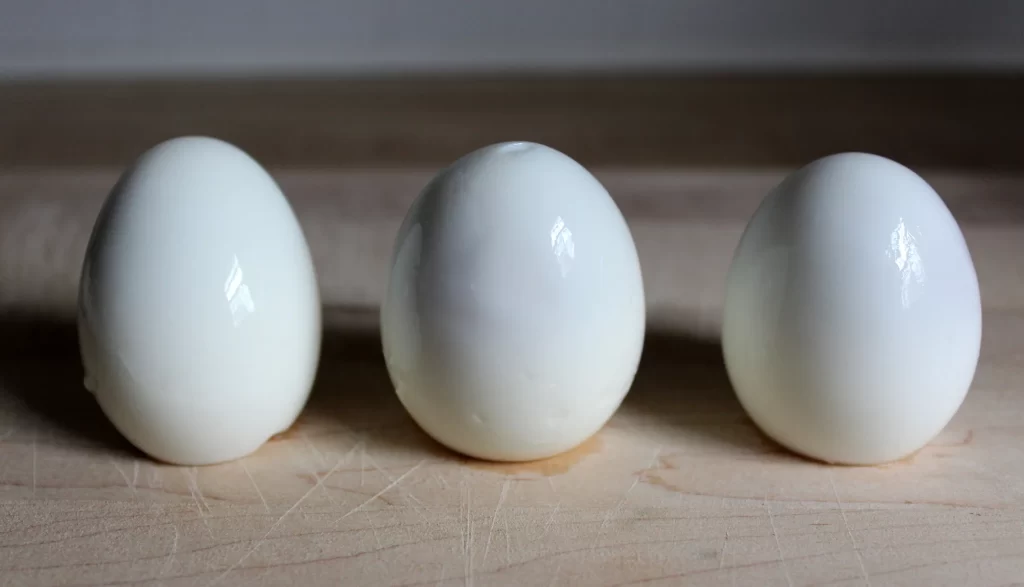
In short, there’s no easy way to tell unless you use a timer while cooking the eggs. In the section below, I discuss how long to cook a hard-boiled egg, but roughly 10 minutes (once it reaches a low boil) is about right. However, there are a few criteria to keep in mind to determine when a hard-boiled egg is done. Here are a few things to keep in mind:
In ordinary water, hard-boiled eggs will sink. If the water is salted, hard-boiled eggs will float. On a counter, a wholly cooked egg will rotate uniformly (a raw or undercooked egg will be wobbly). Hold the egg up to a bright light to reveal the yolk (raw eggs are transparent). It’s not possible to see through a cooked egg.
What is the time it takes to boil an egg?
This is dependent on how well you want your yolk to be cooked if you salt your water and implement other factors. As previously stated, the timer begins when the water begins to boil, and a low boil is also desirable. Of course, there are some minor variations in boiling points and temperatures as a function of altitude, but in general, follow these guidelines:
- Soft-boiled eggs take 6 minutes at a low boil.
- Hard-boiled eggs should be cooked for 10 minutes at a low temperature.
- For a genuinely giant hard-boiled egg, boil for 13 minutes at a low temperature.
Follow these guidelines for perfectly cooked hard (and soft) boiled eggs.
Is it possible to hard boil an egg in a microwave?
The short answer is yes.
The issue is that using too much power in the microwave can cause the egg to explode. It’s the same reason why we prefer the water to be at a gentle boil rather than a full, rolling boil when boiling eggs in water.
Follow these instructions if you’re dead set on microwaving your hard-boiled eggs:
In a microwave-safe glass bowl, crack your raw eggs.
Cover the eggs with cold water (at least 1/2 inch of water on top of the eggs) and set aside.
For each egg in the bowl, add 1/2 teaspoon of salt (it helps reduce the chance of explosion)
6 minutes on high in the microwave (it may take up to 8 minutes depending on how powerful your microwave is, so start with one and test).
How do you peel an egg without it adhering to your fingers?
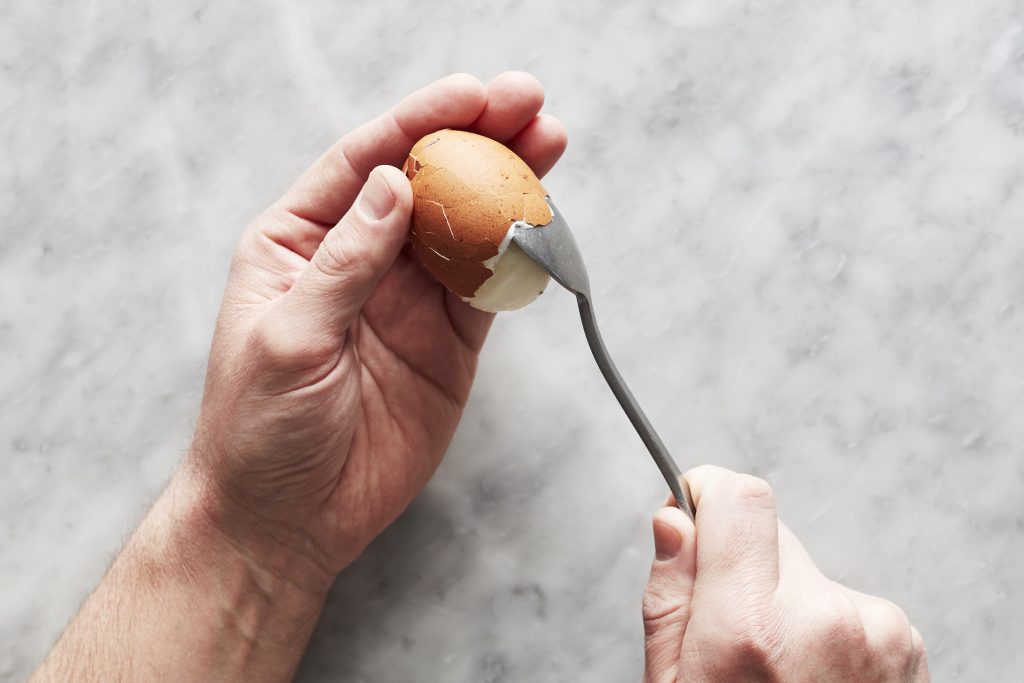
Have you ever started peeling a hard-boiled egg only to have large parts of the shell fall off with it? After a while, the egg resembles an old piece of sheet metal that has been hit 100 times with a BB pistol. So aggravating! It’s incredible how something that appears to be so essential can’t operate consistently. Is that possible?
So, first and foremost, make sure you don’t skip the process of promptly chilling the eggs in ice water once they’ve been cooked. Also, avoid bringing the water to a full rolling boil when cooking the eggs. When egg whites become too heated, they adhere to the inside of the shell more. I also found that keeping the eggs under cool running water while peeling them helps the shell to come off more easily.
Why are some eggs easier to peel than others?
Although we’ve already covered much ground in this piece, the most likely cause of a hard-to-peel egg is that it is really fresh.
Supermarket eggs are frequently sourced from massive industrial farms that employ millions of birds and produce hundreds of thousands of eggs every day. As a result, a carton of eggs could easily be of various ages, regardless of its date.
It’s always fantastic to obtain those fresh eggs if you have a farm or farmer’s market nearby. Then, if you know you’ll be making hard-boiled eggs, place them in a container and date them. They’ll be ready to cook in 7-10 days. And peeling an older egg is always easier than peeling a new one. A little baking soda in the water, as previously noted, will also aid in the smooth peeling of the egg.
How do I peel a hard-boiled egg that is cold?
If you’ve been following along with this post, you’re already aware of the following:
- Choose eggs that aren’t as fresh (7-10 days old)
- Bring to a low boil in a kettle of cold water with about a teaspoon of baking soda added.
- Bring the water to a rolling boil, but not to a full boil. 175° is about right if you have a thermometer.
- Cook for around 10 minutes with the eggs (or 13 minutes for extra-large eggs).
- To crack the egg, gently tap it on a clean, level surface.
- Allow the eggs to cool completely before peeling them (by placing them in the fridge or in an ice-water bath). You don’t want them to be ice cold, but neither do you want them to be scorching.
- Begin peeling the shell gently.
- It’s time for the ice water bath after the eggs have been cooked for 10 minutes and have been gently tapped on a clean, level surface.
- Plunge the eggs in their shells into a dish of chilly water with plenty of ice (no such thing as too much). You want to get the eggs back to room temperature, not frozen or ice cold.
- Remove the egg from the water once it’s nice and cool (about a minute), then gently peel the shell while rinsing under cool water from the sink. If you’ve followed all of the directions, the shell and membrane should usually peel away in huge chunks relatively easily.
But, no matter how long you’ve been doing it, this isn’t a fool-proof method. There are no two eggs that are the same size, freshness, or quality. So keep in mind that you’re not going to get it perfect every time you boil an egg.
Is it really possible to remove the shell of a boiled egg by shaking it in a glass of water?
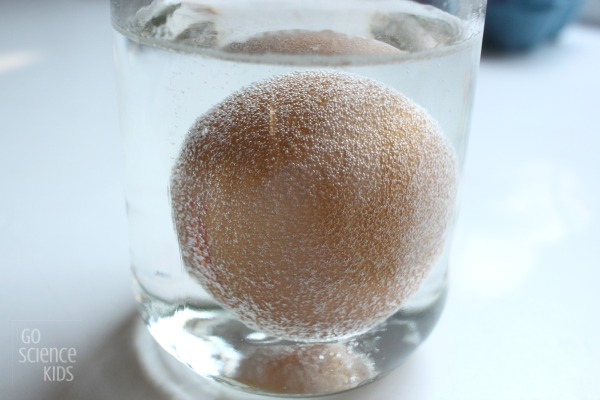
Some of us may recall a viral video from a few years ago in which a man placed a cooked egg in a glass with a small quantity of water, covered the glass, and rapidly shook it. So the central question is whether or not it works. Yes, it does, but it’s a little noisy. So, it’s not the best approach for a couple of hard-boiled eggs first thing in the morning while everyone else is sleeping.
Is it possible to overcook hard-boiled eggs?
The short answer is unmistakable yes. When you consume an overcooked hard-boiled egg, it will be chewier, denser, and dryer. Around the egg yolk will be a dark greyish or greenish ring. What is the source of the grey or green ring? It’s a chemical reaction between the egg whites and sulfur in the egg and the iron in the yolk. While an overcooked hard-boiled egg is still edible, it lacks the flavor of a properly cooked hard-boiled egg.
As a result, allowing enough time for the food to cook is essential. Starting with a pot of cold water and an average-sized egg, it should take about 10 minutes (once the water begins to boil) for an average-sized egg, or 13 minutes for huge eggs. Also, avoid bringing the water to a full rolling boil. Bring the water to a slow boil at 175°F.
Is it possible to reboil soft-boiled eggs?
Yes, in a nutshell, although you might not want to. You could definitely cook an egg longer if you cooked it, peeled it, and discovered that the yolk was not done to your preference. That egg is perfectly safe to eat, and returning it to the hot water to cook for a few minutes more will not jeopardize its safety. I’d do it straight now because I wouldn’t put a soft-boiled egg in the fridge and then prepare more later. That won’t go bad (after a week), but it’ll probably make the egg rubbery and taste terrible.
If you undercooked it and can’t use it, but you’ve already peeled it, just put it back in the boiling water for 3-5 minutes if the water is still quite hot. If the water has cooled slightly, turn the heat down to low and reheat the water and egg together. Please make no mistake: this will not taste as good as a properly cooked egg, but it is possible.
Is it okay to consume hard-boiled eggs that haven’t been thoroughly cooked?
Probably, is the quick answer. I can’t say yes or no because I don’t know how old your eggs are, how much they were cooked or undercooked, or how they were treated after they were cooked. On the other hand, many people eat raw eggs every day in salad dressings or protein smoothies. I’m not recommending it because there’s a risk of salmonella illness with any raw or undercooked egg. However, if you soft-boiled the egg for at least 6 minutes in gently boiling water, it should be perfectly okay. But, again, I have no idea how fresh your eggs are, how long you cooked them for, or how sanitary the conditions are, so proceed with caution.
Is it possible to consume an egg that has broken while boiling?
Without a doubt. It’s basically simply a messy poached egg if the egg entirely leaks out of the shell and into the water. The egg may not look particularly appetizing, but it’ll be just as tasty as any other hard-boiled egg. It will be fine if the egg merely seeped a little bit out of the shell; it will just be less attractive than a properly cooked and peeled hard-boiled egg. If you’re not going to consume it right away, you should keep it refrigerated. Even then, it should be eaten within a week.
What caused my egg to crack when it was boiling?

The egg white, yolk, and air are all contained within an eggshell.
Depending on the type of egg, the balance between those three factors may differ. The insides of the egg automatically heat up as you cook it. When there’s a lot of air inside the shell, the pressure builds up, just like when a pot of boiling water’s lid bubbles. If the air pressure becomes too high, it will try to escape through the weakest point in the shell. As a result, it’s pretty uncommon for the eggshell to split when boiling.
As I’ve previously indicated, one of the easiest methods to avoid this is to avoid bringing the water to a full boil or adding salt to it. It’s best to start with a mild boil and a teaspoon of baking soda.
Is it necessary to keep hard-boiled eggs refrigerated?
Unless you plan to eat them within two hours, the short answer is yes. Salmonella is the most common type of food poisoning in the United States. Unfortunately, eggs are frequently the source of salmonella illness. According to the Centers for Disease Control and Prevention (CDC), almost 150,000 cases of salmonella occur in the United States each year. Proper refrigeration and a general grasp of the food temperature risk zone are essential for avoiding salmonella.
Food-borne germs thrive at temperatures between 40 and 140 degrees Fahrenheit. It is because most of us maintain our houses between 70 and 80 degrees, cooked food left out at room temperature will quickly reach the danger zone. However, even health authorities that review restaurants and grocery stores typically allow food to linger in the danger zone for up to two hours. So, if you’re going to eat those hard-boiled eggs within 2 hours after boiling them, go ahead and leave them out. After 2 hours, it’s probably safer to keep them in the refrigerator until you’re ready to eat.
Have I addressed all of your concerns regarding boiling eggs so that they peel easily?
The basic yet complex world of hard-boiled eggs was shown to us in this post. We looked at how long to cook them for, whether vinegar makes them easier to peel, and how to peel them precisely every time. We also saw whether it’s better to peel them cold or hot, and a slew of other frequently asked questions. Now prepare some beautiful hard-boiled eggs and leave a comment on how they came out.











